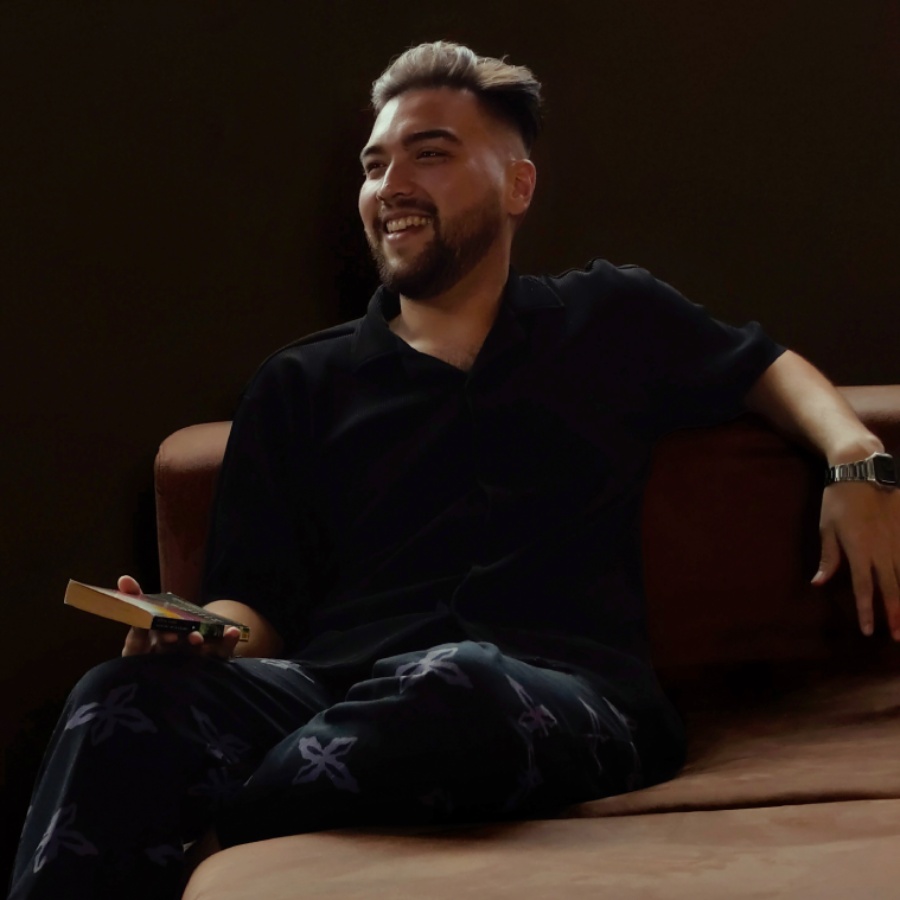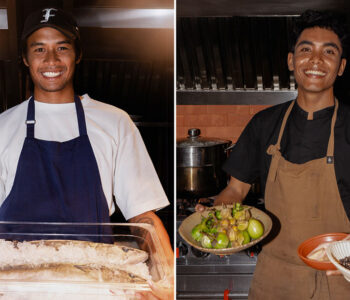If running a charitable organisation wasn’t already enough, these groups have extended yet another hand to the newly vulnerable communities created through the Covid-19 outbreak.
Whilst many charities have their core function and mission, be it providing employment and education or supporting orphanages, there are those who have decided to go above and beyond their usual responsibilities. It seems good deeds and generosity have become an addiction for those already giving, and so they have stepped up their operations to help those hit hard by the circumstances Covid-19 has resulted in.
East Bali Poverty Project
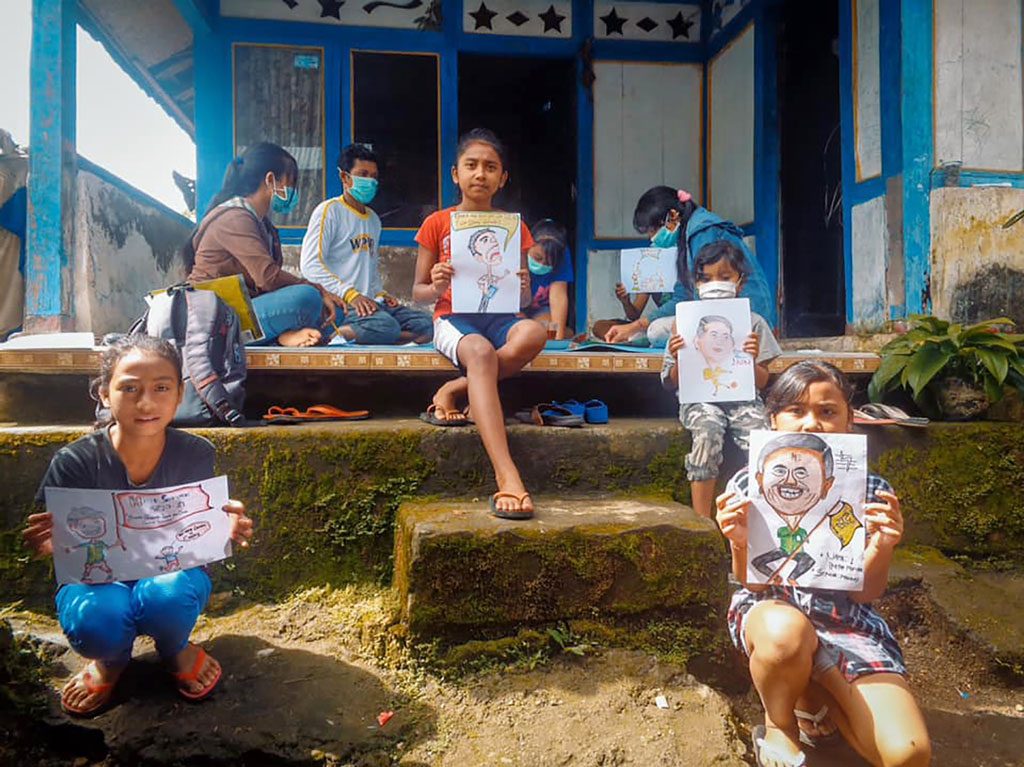
Founded in 1998, the East Bali Poverty Project (EBPP) has been helping communities living in poverty on an isolated 7,200Ha mountain village. With education as the initial foundation of their mission, EBPP has expanded with various environmental initiatives, provide sustainable food resources, provide sustainable livelihoods, and ensuring the preservation of the local environment and ecosystems. EBPP holds the philosophy of “helping people to help themselves”, and have designed all programmes as models that can be replicated and executed by the local people.
In light of the Covid-19 pandemic, the village has been in lockdown, with the EBPP staff continuing to support the communities and village management. They’ve distributed learning materials to students so they can continue studying, assisted health checks for malnourished babies and children under five, and erected a Covid-19 Integrated Service Post to ensure the community to stay at home.
The health team have continued home visits to check on malnourished kids, children with disabilities and special medical conditions, distribute food supplements together with the nutritionist from the community health centre (Puskesmas), help children in need of medical assistance in hospitals and working together with Ban Village and Puskesmas for Covid-19 precautionary.
Their monthly immunisation programme for children from birth up to 18 months has returned. Considering the current Covid-19 situation, parents will not be able to take their children to the Puskemas, which is 22km away, therefore immunisations will be held at Ban Village’s 27 community health posts (posyandu).
EBPP’s work is funded by charitable donations, donors include institutions, organisations and individuals. In this current situation, they are looking for monetary donations and funding to continue their programmes.
Website: eastbalipovertyproject.org
Phone: +62 361 410 071
Bali Children Foundation
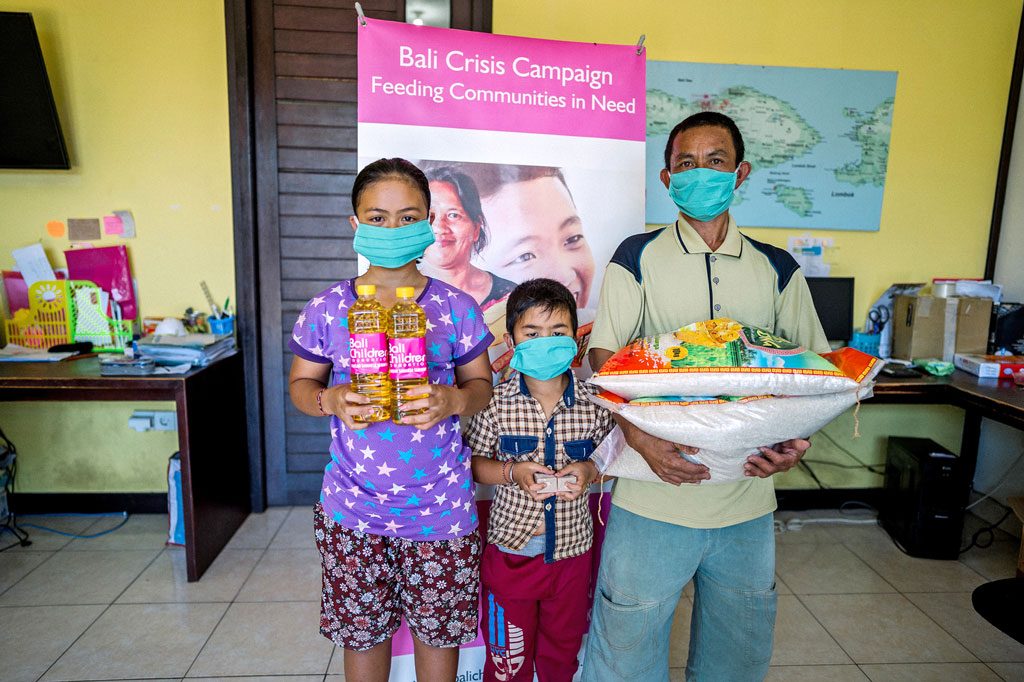
Established in 2002, Bali Children Foundation (BCF) focuses on children’s education in Bali and has helped a total of 76 villages. BCF helps countless children from the villages to finish school, find employment and improve their lives as well as the communities.
BCF aims to make a positive impact through education, providing programmes to students such as student-centric English classes that emphasise on spoken and listening English, Environmental Studies to help create awareness between the students, and Computer Literacy with computers and Internet installed in classes.
In light of the crisis, BCF has set up several campaigns with partners to assist a whole range of communities around the island. This includes fundraising for families of the Bali Aga villages in North Bali, as well as out of work hospitality staff alumni from BCF’s ‘Food for Thought’ hospitality scholarship progam. 160 families in Pedawa and Tigawasa, as well as students, have received donations thus far. Furthermore, they are working with ‘Lembongan Traveller’ to raise ‘Funds for Food’ in Lembongan and Ceningan; and Glo Spa to provide food and hygiene needs to communities at the base of Mt.Agung, who have continued to struggle since the eruption.
BCF relies on donations and fundraising from corporations, organisations and individuals, and without them, BCF wouldn’t be able to continue their work. Their Emergency Foodbank is looking for monetary donations to help feed as many disadvantaged families as possible. Donations will help buy a Balinese family a pandemic food pack, which costs AU$25/pack. One pack can feed a family for an entire month. Donate AU$100 and you can feed a family of 4 for 4 months.
Website: bcfl.org.au/product-category/donations/
Phone: +62 85 100 648 400
E-mail: info@balichildrenfoundation.org
BASAbali
BASAbali started in 2011 to combat the erosion of local, indigenous languages driven by the belief that languages of great culture such as Balinese deserve to be preserved and recognised in the modern world. The Bali-based foundation runs as a collaboration of artists, scholars, and community members trying to encourage a joy of reading, empower girls, and engage people to keep the powerful language and culture of Bali alive and strong.
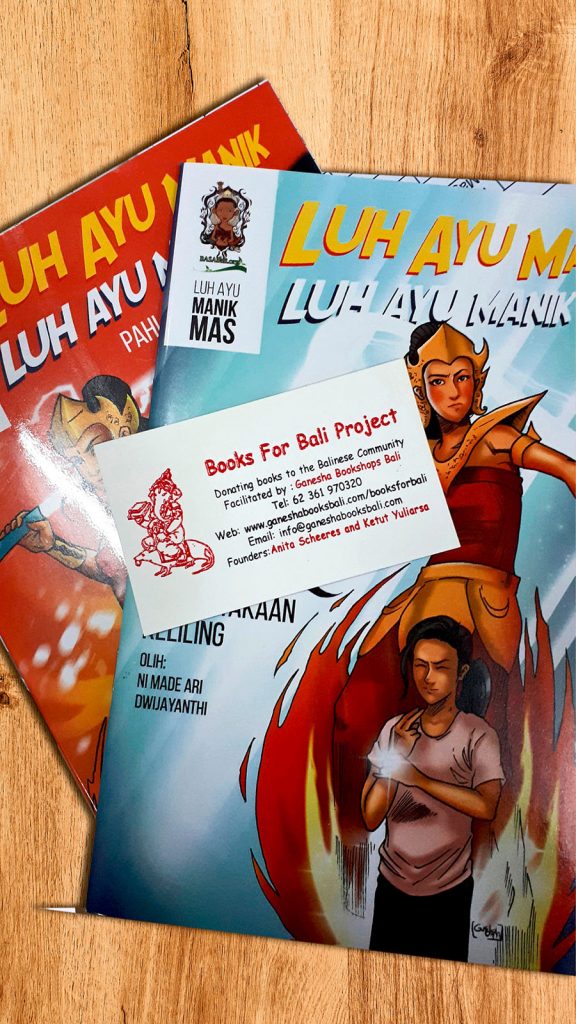
In spite of a high literacy rate, the reading culture in Bali is low. With schools closed indefinitely due to the current outbreak, more children lack access to printed books and the Internet, especially Balinese literature. That’s why BASAbali is encouraging a reading culture among the island’s youth, which will keep students aware and educated during these uncertain times. They have found that the best way to promote a reading culture is by using books that resonate with Balinese youth, and have created a community-developed superhero to do so. The team introduced Luh Ayu Manik Mas a modern-day superhero who engages the public in dialogue about environment and social issues through social media. Every conversation exchanged between the community and Luh Ayu is then illustrated into comic books by local writers and artists. Each adventure is aimed to improve the environment, and as a female superhero, to empower girls and young women.
Her most recent adventure about battling ocean waste is funded by National Geographic’s Early Career Grant, granted to BASAbali’s head of communication, Ni Nyoman Clara Listya Dewi. To further peak the interest of kids and teens, it will be paired with a 3-minute musical animation, showing them that reading and writing in Balinese can be exciting. All books are written in Balinese; translated in English and Indonesian as well for others to enjoy.
The books are available locally through Ganesha Bookstore, through Desa Seni’s online store, and directly through BASAbali (text or WhatsApp Ms. Budi Utami at +62 819-9994-4519). They will also be available on Amazon.
To support the preservation of the Balinese language and donate books for children, espeically during this time, visit their Go Fund Me page. The team ensures the books are received by children in need throughout Bali via Ikan Kecil, Bali’s Children’s Project, and Books for Bali who have helped the distribution of books to impoverished communities. In these times, we could all use a superhero, and what better superhero than a female superhero who is emerging from the Balinese community!
Website: basabali.org
The Kolewa Foundation
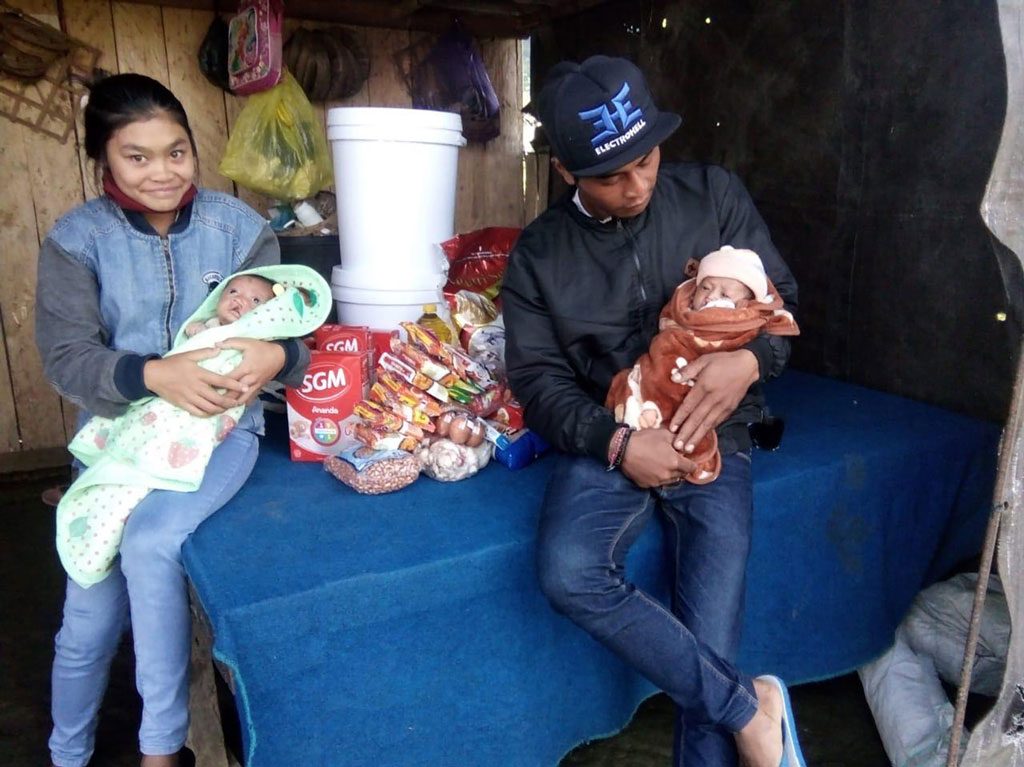
The Kolewa Foundation is a non-profit organisation with ANBI status, working towards a better future for underprivileged families and children with disabilities in Indonesia’s remote villages. A large part of their beneficiaries come from East Nusa Tenggara islands and Bali, with the latter sheltering most of them. Yearly, Kolewa offers 200 vulnerable children and young adults access to healthcare and suitable education. The team on a daily basis takes care of children in need of medical help from cleft lip, hearing impairments, to anus atresia, deformities from burns, and other diseases. They also ensure these families have access to clean drinking water and the children follow Kolewa’s ‘special education’ programme. Kolewa teams up with Bali hospitals Dharma Yadnya for cleft lip and palate and Sanglah for anus atresia, spina bifida, and meningocele.
Many of the families are severely affected by the COVID-19 outbreak. Parents who worked in tourism have been made redundant, those owning small businesses (warungs, wood carving, etc.) are also slowly losing income due to the challenging situation. Kolewa’s team have limited travelling and scouting, temporarily putting a halt to all domestic travelling and unfortunately leaving patients on waiting list for surgery. To date, there are more than 25 families in Bali who need operations but have been postponed, all in need of food parcels. Over 60 families in their deaf programme need financial support due to the changes in economy. Since the closure of schools, Kolewa are unable to assist field-partners in Nitti Mandala Club School and Samaritania Slum School with teaching normally done every Thursday and Friday. With the island on ‘soft lockdown’ and the existing ban on public gathering, the team had to stop outreach programmes, preventing them to do check ups on those who are affected in remote villages.
To help alleviate the situation, Kolewa is supporting 100 families with food parcels throughout Denpasar, Karangasem, and Buleleng. Children on waiting list, former patients, and elderly people from the outreach programme are still being monitored closely whilst respecting health and safety measures. 30 students who are out of school are given two-weeks internet credit to follow Kolewa’s online lessons in sign-language, whilst actively finding second-hand solutions for those without smartphones. Since the travel ban, Kolewa has taken in 6 stranded patients and their mothers, also waiting for treatment, in their Bali shelter home.
The team has been organising online fundraising initiatives to raise money for the food packs (around IDR 385,000/pack), water filters (IDR 450,000) and two weeks of online lessons (IDR 85,000). You can donate through their website or deliver food (rice, oil, eggs, fruit, vegetables, flour, sugar are very welcome) to their shelter home in Jalan Pulau Sebatik no.14, Denpasar.
Website: kolewa.com

